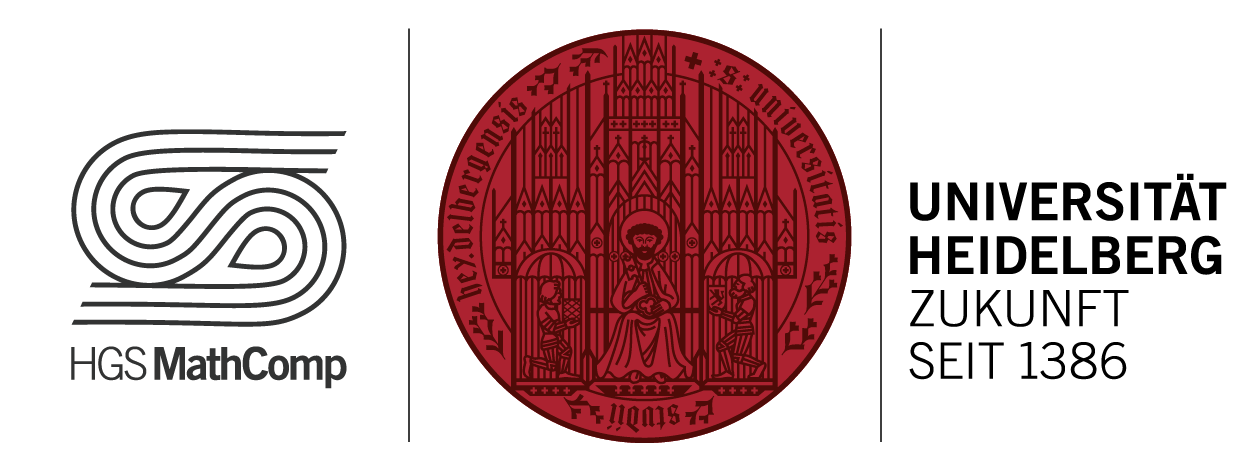
HGS MathComp - Where Methods Meet Applications
The Heidelberg Graduate School of Mathematical and Computational Methods for the Sciences (HGS MathComp) at Heidelberg University is one of the leading graduate schools in Germany focusing on the complex topic of Scientific Computing. Located in a vibrant research environment, the school offers a structured interdisciplinary education for PhD students. The program supports students in pursuing innovative PhD projects with a strong application-oriented focus, ranging from mathematics, computer science, bio/life-sciences, physics, and chemical engineering sciences to cultural heritage. A strong focus is put on the mathematical and computational foundations: the theoretical underpinnings and computational abstraction and conception.
HGS MathComp Principal Investigators are leading experts in their fields, working on projects that combine mathematical and computational methodology with topical research issues. Individual mentoring for PhD candidates and career development programs ensure that graduates are fully equipped to take up top positions in industry and academia.
Current Opportunities
4EU+ Joint DFH/UFA workshop on AI in Medicine: Optimised Trials with Machine Learning (Paris)
Deadline: April 30, 2024
Scientific Software Center (SSC) Open Call: Software Development for Research Projects
Deadline: June 15, 2024
Scientific Software Center (SSC) Open Call: Fellowship Program
Deadline: June 15, 2024
Upcoming Events [see all...]
Registration: Please use this form to register (Deadline: May 2, 2024)
Organizer: HGS MathComp Fellow Speakers
Please register via this link so that we know how much pizza and drinks we need to organize: Registration will be open until Thursday, May 2.
Organizer: HGS MathComp
It would be great to see you at the mixer. Please feel free to share this invitation with other PhD and master students who might be interested.
See you at the HGS MathComp Mixer!
Michael & Rob
16:15
[ more ...]
Location: Mathematikon • Conference Room, Room 5/104, 5th Floor • Im Neuenheimer Feld 205 • 69120 Heidelberg
Registration: No registration required
Organizer: Interdisciplinary Center for Scientific Computing (IWR)
Link:
The IWR Colloquium will be held as an in-person event at the Mathematikon. In addition it will be streamed via Zoom. For more information please visit the website of the colloquium.
The model is realized in the parallel software system M++, and we show that the full model for a heart beat is scaling very well on modern HPC systems.

